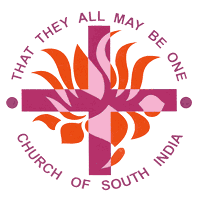Church to Protect the Concerns of Future Generations
“What is your true colour?” asked K. Paul Thomas, the MD and CEO of ESAF (Evangelical Social Action forum) bank while inaugurating the two-day workshop on sustainable values for a Green Church organised by the CSI synod Department of Ecological Concerns at Kanyakumary. The ‘colour’ of our churches and communities are based on the effects or outcome of what we really do. So, knowingly or unknowingly, we have a colour- as a church, as a community and also as an individual. The question is what is the true colour of the Church? The Church should support only the development that meets the needs of the present without compromising the ability of future generations to meet their own needs. Rights to the “future generations” have been granted by the Creator. (Genesis 1: 28) .“…multiply and fill the earth…” which means “make generations” and they cannot exist without meeting their needs. So God created an equitable & sustainable eco-system and God established intergenerational equity through creation.
Paul Thomas said that Sustainable Development has three pillars- Social, environmental, and Economic. He requested the Church to build inclusion as a sustainable value. An inclusive society envisages a ‘Society for All’, where every individual with their rights and responsibilities has an active role to play in the development of the society. He presented the current scenario where Water, Minerals, Bio diversity (Plants, Animals, Fishes, Forests, Agriculture Lands etc) are fast depleting. Twenty-five percent of the country’s population, across 10 states, had been hit by drought after two consecutive years of weak monsoons in 2016; the destruction of forest land across the country is on an average, 135 hectares (around 333 acres) per day; indiscriminate use of pesticides causing fast depletion of the Honeybee population. (One-third of our global food supply is pollinated by bees); the global fishing fleet is 2 or 3 times bigger than what the oceans can sustainably support and production of paper cups (globally) requires 32 million trees annually.
Conservation is honouring God by protecting God’s creation and thereby protecting the sustainable livelihood of the poor. He requested the Church to win communities to adopt the low carbon lifestyle, develop leadership so that the concept can be disseminated, support the excluded children and reach the women to make them ambassadors for low carbon lifestyle. Formation of farmer collectives will become channels for sustainable development, he added.
Mr. Sridhar Radhakrishnan presented the unsustainable values which are being promoted by a consumerist society. Dr. Sankaranarayan Paleeri presented a paper on eco-friendly constructions. Fifty-nine delegates from various Dioceses of the CSI actively participated in the workshop. The participants were divided into six groups and they discussed the sustainable values to be promoted in the CSI. Bishop M Joseph, Chairman of Synod Ecological concerns Committee delivered the concluding address. Dr. Mathew Koshy Punnackad, Hon. Director of the Department of Ecological Committee presided over the meeting. Dr. Paul Raj and Rev. Vincent Robert, conveners of ecological Committee of Kanyakumary, also spoke. The hospitality of the CSI Kanyakumary Diocese was highly appreciated by all the delegates. The CSI Synod Department of Ecological Concerns expressed thanks to Bishop Rt. Rev. G. Devakadacham and Treasurer Adv. Robert Bruce for hosting the workshop at Kanyakumary.
Prof. Dr. Mathew Koshy Punnackad
Hon. Director, Department of Ecological Concerns
Environmental Sunday Worship Service Orders in Telugu and Kannada
Please find the Worship Service Orders for the Environmental Sunday in Telugu and Kannada
in PDF attached here. Please do feel free to use them in your
churches/organisations/institutions.
Prof. Dr. Mathew Koshy Punnackad
Hon.
Director,
CSI Synod Department of Ecological Concerns

1526018891Ecology_Sunday_Sermon_Kannada-2018.pdf

